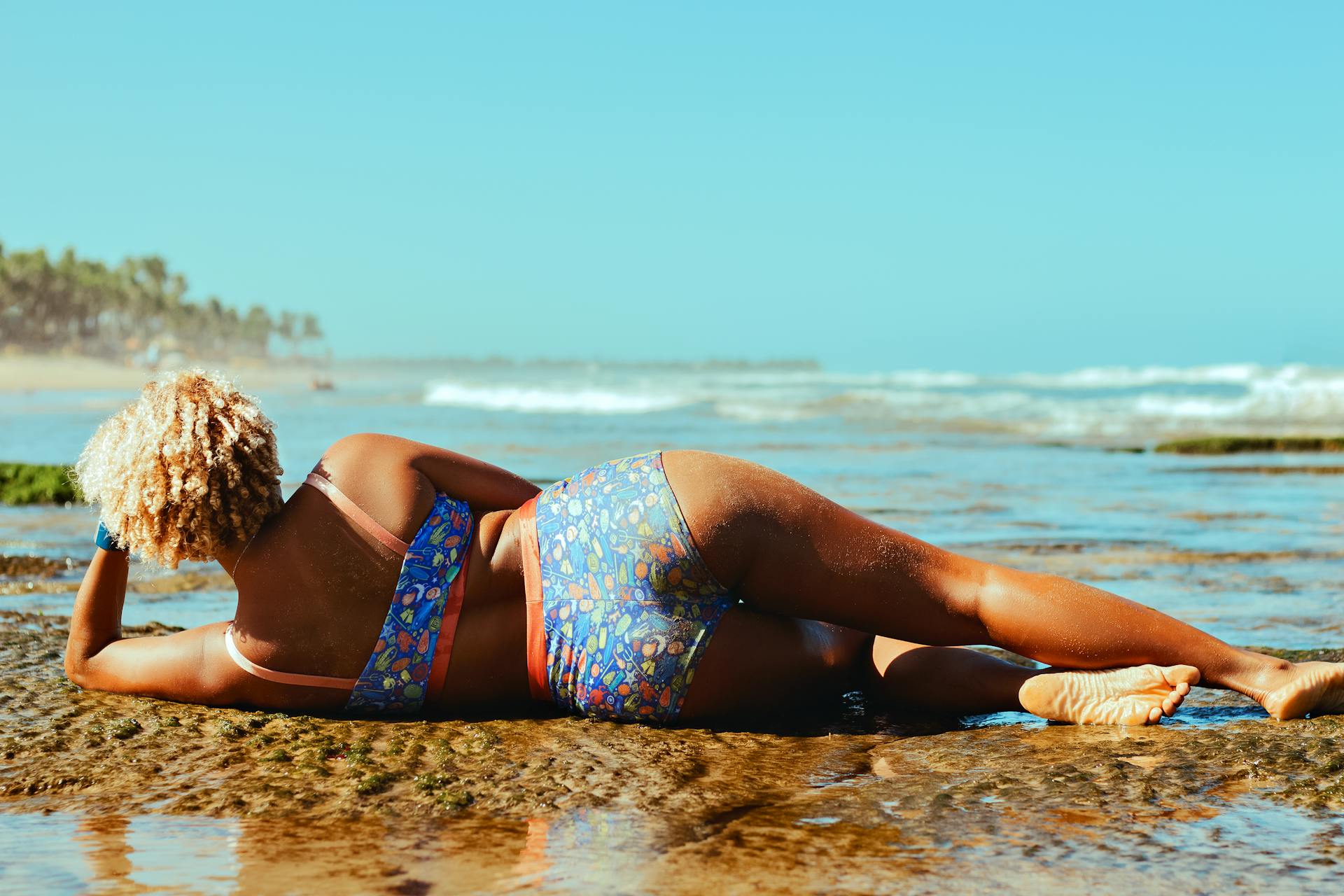Although it’s hot outside and you want to go for a dip in the pool, it’s critical to properly prepare your hair. It is critical to use pre-swim haircare methods and never jump into water.
Chlorine, which is typically found in pool water, strips your hair of its natural oils, leaving it dry and damaged. Your hair needs protection before you swim. The founder of Dallas-based Flourish Hair Salon Sess Cannon offered a few tips for pre-swim haircare. She asserted that the work begins at home with these tips on how to prepare your hair and protect it.
When it comes to Black hair and swimming, it’s important to know that different bodies of water uniquely affect hair.
Pool Water
Out of all the different types of water and their effect on Black hair, chlorinated pool water adds the most damage.
“Everyone who has enjoyed a day at the pool has certainly felt the drying and feeling of depletion in their hair when they got out,” Cannon said.
Pool water is full of chlorine, which wreaks havoc on natural hair. Chlorine strips the hair of its protein structure, which can make the hair weak and easy to break. As it raises the hair cuticle, it absorbs all the natural oil and lubricants. This leads to dry and brittle strands that are now exposed to further damage.
Lake Water
Although lake water is different, Cannon wouldn’t say it’s much better than chlorinated water on hair. Lake water is full of minerals like calcium, iron and magnesium. These minerals create a barrier around the strand that can even prevent the shampoo and conditioning process from removing them.
This is in addition to the contaminants in lake water that negatively affect the hair and scalp. The pH levels in the lake are very alkaline. With the hair being acidic, it lifts the cuticles and makes the hair more susceptible to breakage and dryness.
“This is similar to having hard water at home,” Cannon said. “It can break down the structure of the hair and cause the hair to lose texture and strength.”
Ocean Water
Ocean water actually causes the least amount of damage to the hair, but your hair will still need to be managed.
“Sea water can act as a natural clarifier to the hair which can really bring your natural texture to the forefront,” Cannon explained. “This gives it amazing definition and volume.”
On the other hand, too much exposure to the salt in the water can lead to dryness. Coupled with the sun’s UV rays, this can deplete the protein structure in the hair.
Natural Hair No Nos During the Summer
Cannon explained that the biggest no’s are jumping in any body of water with free, unwet hair. “Free, unwet hair” refers to having your hair out in its natural state with no twists, braids, buns or contraptions.
“It’s like taking a dry sponge and submerging it in water.” she said. “If the sponge is already wet, there is no room for any other liquid to be absorbed.”
Precautions for Relaxed or Colored Hair
The most important thing to understand about chemically treated hair is that it is already in a weakened state to some degree.
“All chemically treated hair is not damaged, but what I am saying is that chemicals cause weakness to the hair to some degree, whether big or small,” Cannon said. “As a foundation, chemically treated hair just adds to the fragility of what can happen in an environment that can already cause damage.”
The first step is to examine what a swim routine looks like for you.
“If this is a regular routine, then your precautions will look different than someone who has a one-night stand swim,” Cannon said.
If this is something you are incorporating frequently into your routine, you should invest in a quality swim cap and products for swimmers. This way you can properly protect your hair before, during and after swimming.
Practical Pre-Swim Haircare Routine
Keep your pre-swim routine simple by making sure your hair is full of fresh water. You should also, at the bare minimum, apply a leave-in conditioner and tie it up in a style that will keep it contained. This could be in either a bun, a braid or anything any style that keeps it contained. This is so it’s not just free in the water.
If you will be swimming a lot within a certain period of time, then invest in a swim cap, leave-in conditioner, a swimmer’s shampoo and conditioner. For frequent swimmers, Cannon suggested shampooing and conditioning at least once per week. Get styles that enable you to shampoo your hair often.
Advice for Summer Haircare
For women who are worried about possibly damaging their hair while swimming this summer, Cannon encouraged them to live their lives.
“Yes, take precautions for your hair, but don’t let it stop you from enjoying your summer,” Cannon said.
She added that many Black women grew up unable to swim and participate in water activities often because of their hair. Although it does add a layer of maintenance to Black women’s lives, she said it’s just a part of the puzzle.
